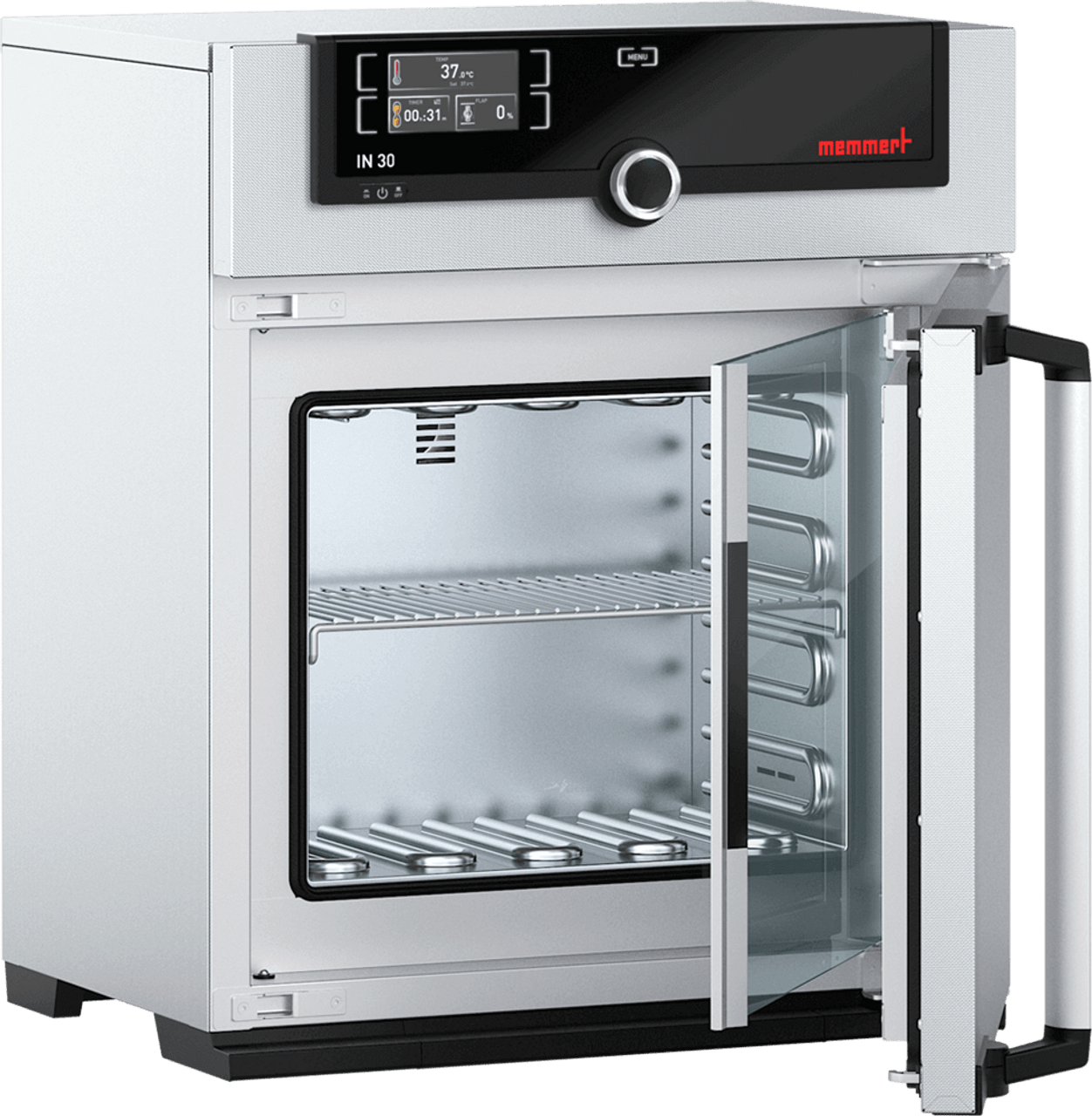Nearly all laboratory work requires the use of one type of heating device or another.
Heating can be used to create chemical changes, maintain favorable growth conditions, and evaluate how products or systems perform under stress.
While the choice between an oven, incubator or humidity chamber depends on many factors, there are some basic things to know that will help guide the lab manager to making an informed decision.
What are common uses for a lab incubator?
A lab incubator is designed to maintain a specific temperature that is optimum for biological growth, depending on what is being grown.
Lab incubators can be small and basic, just enough room to store a few stacks of petri dishes growing yeast or bacteria, or they can be refrigerator sized for producing large scale batches of mammalian cells.
Lab incubators are typically capable of maintaining temperatures from as low as 0C up to 80C, depending on if the incubator is equipped with a heating element alone, or also a system for refrigeration.
Lab incubators generally do not offer active and precise humidity control. A water pan placed inside the incubator will create a relative humidity feel of around 85% on average. Humidity is important for preventing sensitive biological samples from drying out.
Look for these valuable features when purchasing a lab incubator:
Does the incubator come with an interior glass door for viewing samples without altering the chamber temperature?
Does the incubator have an internal electrical outlet or a passthrough port to power lab equipment inside the incubator?
Does the incubator have data logging capabilities for reproducibility?
When the material needs to be dry, it’s time to choose a lab oven
Lab ovens are used for drying everything from lab glassware to vanilla bean pods, to curing finishes and preventing moisture from forming on microchip boards.
Lab ovens are designed to hold heavy loads and reach temperatures up to 300C.
Gravity convection lab ovens are built with heating elements throughout the interior for excellent heating consistency without moving air that might disturb lightweight materials. They tend to dry at a slower rate than mechanical ovens.
Mechanical, or forced air convection ovens achieve temperature uniformity by blowing warm air across the interior using fans. This is good for heavier items or where rapid drying is needed.
Some situations require the oven to “ramp and soak” – that is, the oven should be programmable to increase or decrease temperature and hold for a set period of time.
Sophisticated lab ovens like the UN/UF Plus family from Memmert can be programmed to perform a series of temperature changes over time and record data in an exportable format.
Be sure to ask these questions before purchasing a lab oven:
What voltage is the lab oven, and does it need to be hard-wired into the facilities electrical system?
How many shelves come with the lab oven and how many can be added?
What is the weight capacity of each shelf, and what it the total load capacity of the oven?
Is a humidity chamber and a constant climate chamber the same thing?
No. While both devices introduce the ability to control humidity inside the chamber, they are designed for different purposes and have different capabilities.
A humidity chamber is designed to create the effects of humid heat, but without any condensation. This allows the humidity chamber to reach higher temperatures without risking water exposure.
Very precise humidity is injected into the incubator by a microprocessor-controlled steam pump.
A constant climate chamber is typically chosen for product or shelf-life testing to evaluate how the item holds up under different environmental conditions.
Important considerations to think about when selecting a humidity chamber or constant climate chamber
Because testing chambers are left on for months at a time, how much energy will it draw, and are there any energy saving features to lower costs?
How is data stored and transferred? Does your facility permit USB sticks, or must the testing chamber be physically connected to a laptop or PC?
How easy is it to set up programs? Is the software intuitive and how many languages are built in so more lab members are comfortable using the chamber?
Stellar Scientific has the knowledge and experience to recommend the right laboratory oven, incubator or testing chamber for your needs.


